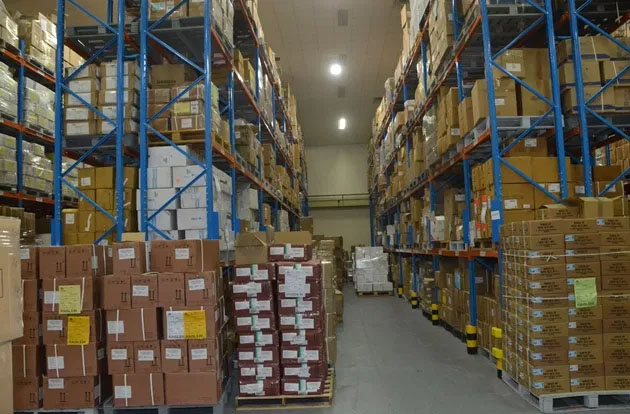The Ministry of Health is hoping to stabilise the country’s drug and medical supplies by July after having to discard billions of dollars in expired stocks, Health Minister Dr. Frank Anthony has said.
During a virtual press conference on Monday, Anthony stated that from 2015 to present, approximately $10 billion in drugs had to be thrown away as they were expired.
“We have been working very hard to procure things into the system and so last year we did emergency procurement and we have expended close to $12 billion to ensure that we get supplies into the system,” he said.
The minister noted that when the current administration took office in August, 2020, it found that the ministry’s Materials Management Unit (MMU) was filled with mostly expired medication that could not be used. This stock of expired medicines, he said, was made even worse as the electronic system at the MMU was down and as a result the stock level could not be ascertained.
“That information system was dysfunctional, it wasn’t working for a while and, therefore, management of medicines coming in an out, we weren’t certain what was happening,” he said.
He also mentioned that more than 80% of the bond space at the MMU was occupied by expired medicine and supplies. As a result, Anthony noted that the ministry has been working with the Food and Drug Department to get rid of all the expired items since August and they have so far been able to dispose of some.
“In order to create space at the MMU, we actually had to dump close to $1 billion of expired medicine and this happened between August and September last year. Unfortunately, between October and the current time, we also had to continue dumping medicines, because as we discovered many of these things have also been expired and we estimated that between October [and] now another billion dollars or so of expired items or so had to be thrown away,” he explained.
This, he mentioned, amounted to approximately 300 truckloads of expired goods that had to be thrown away.
Anthony noted that the amounts disposed of from the MMU do not include the amounts that had to be disposed from the Georgetown Public Hospital Corporation (GPHC).
Additionally, he mentioned that after they had looked at records from 2015 to date, they asked for a comprehensive audit to be conducted to be able to have a better look at the situation. An audit of the MMU has been completed, he said, even as a similar process has begun in all of the regional storage facilities.
“So we have completed this audit at the MMU, which is the central stores. We have also done a similar audit at the GPHC and now we are doing this audit at the regional level. The ministry so far had to discard what we inherited, about 70% of the medicines in the bond, and that’s quite a lot,” he said, while adding that that speaks to mismanagement of the procurement process.
Between January and October 2020, the minister noted, the MMU experienced difficulties in fulfilling requests made by the regions for certain drugs. Additionally, Anthony said that in some cases, some imported medicines that were needed for tuberculosis and HIV patients were at zero even as medicines for patients with chronic diseases and even those needed to sustain operations at the theatres were unavailable.
He even recalled challenges that the MMU had in relation to providing Personal Protective Equipment (PPE) for the healthcare workers between March and September of last year.
Meanwhile, of the close to $12 billion expended on emergency supplies, Anthony said some $4 billion was spent on essential medicines while another $5 billion was used to procure PPE and even $3 billion on reagents to have the laboratories in the country functioning.
At present, he said, when requests for drugs are sent in from the region, the MMU is able to meet about 64% of the needs requested and in some cases, depending on what is being requested, 100%. “But we still can’t fill all their needs because in some cases we still have shortages and we are working to address those shortages. So it’s a big problem and we have been working on addressing those problems as we go along,” the minister reported.
Further to this he mentioned that a number of tenders for supplies have been out even as more are expected to be put out soon.
Anthony said the ministry hopes to stabilise the supply fully by June or July, “In this case, we will be able to stabilise the supply and hopefully by June, July… we will be able to have the situation under control because we are making every effort to address the shortages that we currently have,” he added.






